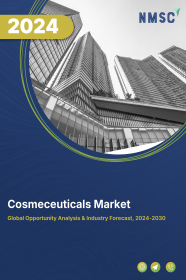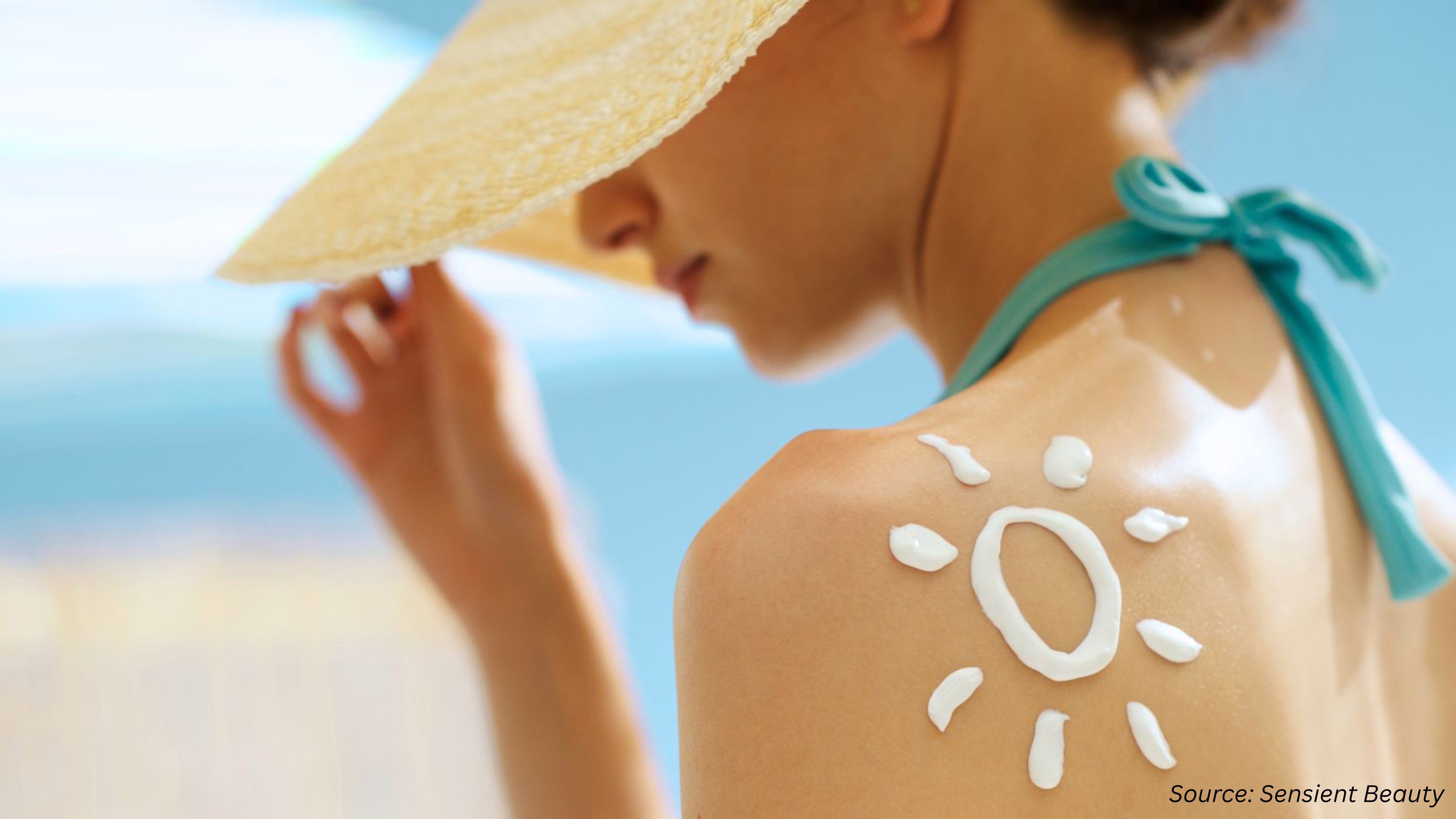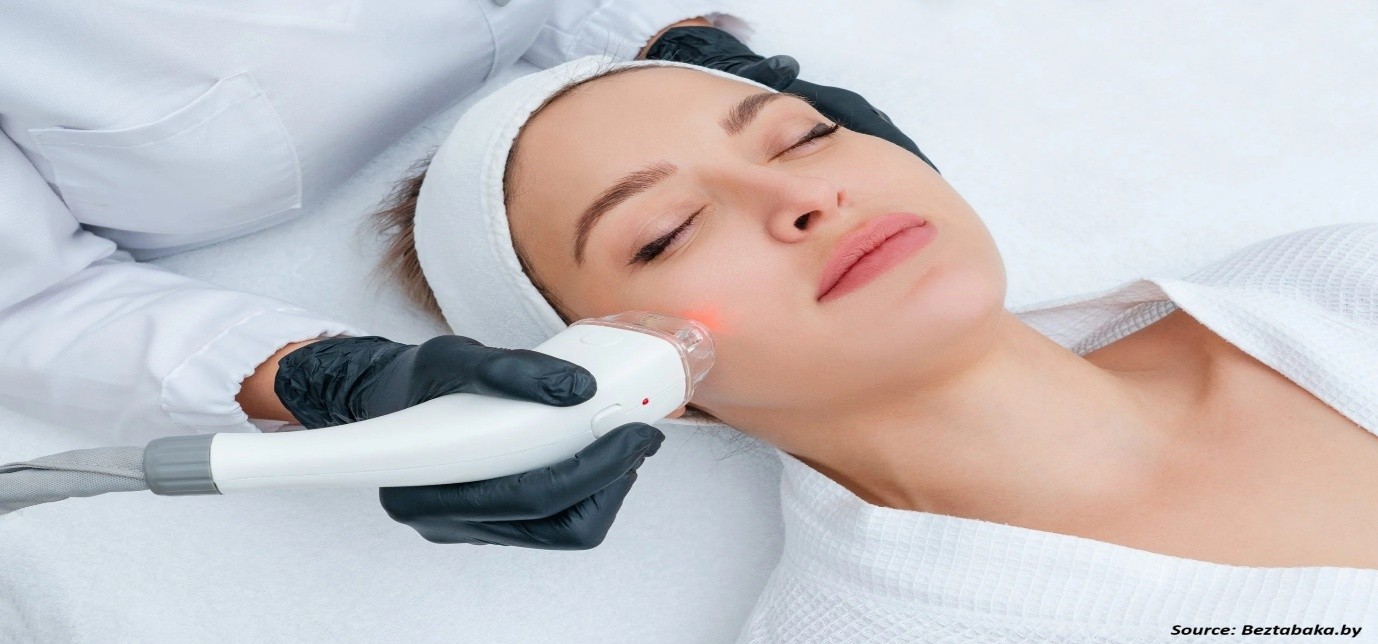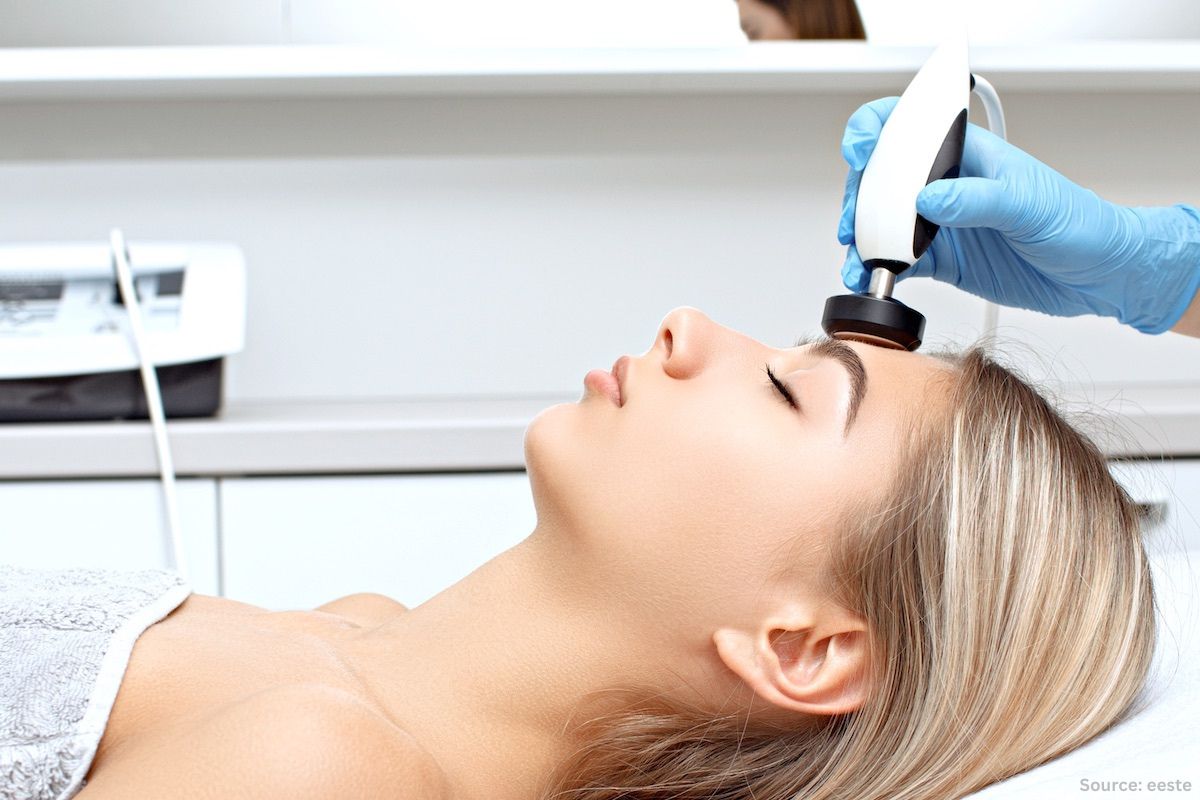
Cosmeceuticals Market by Product Type (Skincare, Haircare, Injectable, Oral Care, and Others), by Ingredients (Proteins, Antioxidants, Vitamins, Metals, Ceramides, Peptides, Amines, Acids, Exfoliants, Moisturizers, Retinoids, and Others), Packaging Material (glass, plastic, metal, and Others), and by Distribution Channel (Supermarket, Pharmacy, Drug Stores, Beauty Salon, Online Retailing Store, and Others) - Global Opportunity Analysis and Industry Forecast, 2022– 2030.
Market Definition
The Cosmeceuticals Market size was valued at USD 46.50 billion in 2021 and is predicted to reach USD 85.5 billion by 2030 with a CAGR of 6.1% from 2022-2030.
Cosmeceuticals refer to cosmetic products with qualities of both cosmetics and pharmaceuticals for enhancing the health and beauty of the skin. Cosmeceuticals include bioactive and therapeutic ingredients that are purported to have medical benefits. Some common ingredients of cosmeceuticals include antioxidants, hydroxy acids and skin lightening agents among others.
Cosmeceutical products are available over-the-counter and are generally used as a part of the regular skin care treatment to help improvise skin tone, texture, pigmentation and fine lines. These products work at a cellular level and avoid harsh chemicals associated with cosmetics products. They counter the effects of changing environmental conditions and offer a cost-effective alternative to cosmetic surgery.
Market Dynamics and Trends
Increasing demand for cosmeceuticals is due to rising global urbanization and industrialization that leads to various types of airborne pollutants such as polycyclic aromatic hydrocarbons (PAHs), volatile organic compounds (VOCs) and nitrogen oxides (NOx), which cause skin disorders including acne, eczema, hives and others. Also, the rising case of acne and availability of the various cosmeceutical brands such as Johnson’s clean & clear, Nykaa and L'Oreal Paris Revitalift Crystal Micro-Essence for the treatment of acne further boost the market growth.
For instance, in August 2021, Nykaa launched Nykaa Skinrx, a range of gender-neutral four high-performing serums. These serums come with multi-faceted formulas with HERO active ingredients especially suited to target skin concerns, like wrinkles, acne, dehydrated skin and dark spots, as well as deliver deep hydration and glow. Moreover, availability of technologically advanced and user-friendly cosmeceutical products is driving the growth of this market.
For instance, some latest trends in cosmeceuticals technology such as biotechnology, therapeutic cosmetics, DNA analysis and 3D printing are transforming the personal care industry. It allows the cosmeceuticals brands to stand out in a crowded marketplace with unique products that fulfill the changing needs of the consumer.
However, high cost of branded cosmeceuticals as well as the availability of deceptive products due to lack of stringent regulations related to approval of these products are factors that are expected to restrain the market during the forecast period. On the contrary, rising advancements such as extraction of active components from plants that are used for treatment of allergies and skin burns are expected to create ample growth opportunities for the market in the coming years.
Market Segmentations and Scope of the Study:
The global cosmeceuticals market share is segmented on the basis of product type, ingredients, packaging material, distribution channel, and geography. On the basis of product type, the market is classified into, skincare, haircare, injectable, oral care, and others. Skincare is further sub-divided into skin whitening, sun protection, anti-aging, anti-acne, professional skincare, and others. The haircare is again sub-segmented into anti-dandruff, hair growth, keratin treatment, and others. The injectable is sub-divided into dermal fillers, Botox, and others. Further, oral care is bifurcated into toothpaste and mouthwash, and others. On the basis of ingredients, the market is segmented into proteins, antioxidants, vitamins, metals, ceramides, peptides, amines, acids, exfoliants, moisturizers, retinoids, and others. On the basis of packaging material, the market is categorized into glass, plastic, metal, and others. On the basis of distribution channels, the market is categorized into supermarkets, pharmacies, beauty salons, drug store, online retailing stores, and others. The regional analysis of the market comprises North America, Europe, Asia Pacific, and rest of the World.
Geographical Analysis
Asia-Pacific holds the predominant share of cosmeceuticals market at present and is expected to continue its dominance during the forecast period. This is attributed to the factors such as busy and stressful lifestyles along with degrading environmental conditions such as pollution and depletion of ozone layer that create more concerns about skin and hair health. These factors influence the consumers to prefer skin and hair rejuvenation products over other cosmetics. Also, rising population coupled with increased awareness of cosmeceuticals products due to the influence of social media are factors that are expected to drive the market.
Moreover, rising focus of market players to improve product distribution and launches along with investments in digital infrastructure is expected to fuel the market growth. For instance, in May 2021, Shiseido had established a joint venture with Accenture to accelerate Shiseido’s digital transformation. The digital transformation is part of Shiseido’s new “WIN 2023 and Beyond” corporate strategy to aggressively invest in areas that will become the foundation for long-term growth, including branding, innovation, supply chain, and the future workforce.
On the other hand, North America is expected to show a steady rise in the cosmeceuticals market due to the use of injectables such as Botox and dermal fillers to reduce the appearance of facial wrinkles. For instance, according to the survey conducted by American Society of Plastic Surgeons in 2021, Botox injections became the most popular non-invasive cosmetic procedure, with 4.4 million procedures performed in 2020. Also, large pool of patients suffering from dermatological disorders such as acne, eczema and psoriasis along with growing adoption of advanced dermatological products are supporting the growth of cosmeceuticals market in this region.
For instance, according to the American Academy of Dermatology Association in 2021, Acne is very common among adolescents and young adults, and can persist into adulthood, which accounts for over 50 million people in the United States. Also, Psoriasis, a chronic skin disease affects 3.2% of the U.S. population.
Competitive Landscape
The cosmeceuticals market comprising of various market players such as Croda International Plc, Johnson & Johnson, Allergan, L'Oréal S.A., Procter & Gamble, Shiseido, Beiersdorf, Elementis, Unilever, Henkel. These market players are adopting various strategies such as product launches an acquisition to maintain their dominance in the cosmeceuticals market.
For instance, in June 2022, Shiseido Company Limited announced the launch of a new skincare brand SIDEKICK, consisting of eight products which focuses on the Gen-Z-specific skin concerns. These products are formulated by combining naturally-derived ingredients with advanced technologies that also support the skin’s moisture barrier function with each use creating a skin environment that is more resilient.
Also, in January, 2022, Procter & Gamble (P&G) had announced the acquisition of Tula, a skincare brand to drive consumer growth as well as support expansion and innovation. This acquisition adds to the wellbeing brand to its existing, and fast-growing prestige portfolio, which includes SK-II, First Aid Beauty, Ouai hair care and Farmacy Beauty.
Key Benefits
-
The cosmeceuticals market report provides the quantitative analysis of the current market and estimations through 2022-2030 that assists in identifying the prevailing market opportunities to capitalize on.
-
The study comprises a deep dive analysis of the cosmeceuticals market trend including the current and future trends for depicting the prevalent investment pockets in the market.
-
The information related to key drivers, restraints and opportunities and their impact on the cosmeceuticals market is provided in the report.
-
The competitive analysis of the market players along with their market share in the cosmeceuticals market
-
The SWOT analysis and Porters Five Forces model is elaborated in the study.
-
Value chain analysis in the market study provides a clear picture of the stakeholders’ roles.
Key Market Segments
By Product Type
-
Skincare
-
Skin Whitening
-
Sun Protection
-
Anti-Aging
-
Anti-Acne
-
Professional Skincare
-
Others
-
-
Haircare
-
Anti-Dandruff
-
Hair Growth
-
Keratin Treatment
-
Others
-
-
Injectable
-
Dermal fillers
-
Botox
-
Others
-
-
Oral Care
-
Toothpaste
-
Mouthwash
-
Others
-
-
Others
By Ingredients
-
Proteins
-
Antioxidants
-
Vitamins
-
Metals
-
Ceramides
-
Peptides
-
Amines
-
Acids
-
Exfoliants
-
Moisturizers
-
Retinoids
-
Others
By Distribution Channel
-
Supermarket
-
Pharmacy
-
Drug Stores
-
Beauty Salon
-
Online Retailing Store
-
Others
By Geography
-
North America
-
U.S
-
Canada
-
Mexico
-
-
Europe
-
UK
-
Germany
-
France
-
Italy
-
Spain
-
Rest of Europe
-
-
Asia-Pacific
-
China
-
India
-
Japan
-
South Korea
-
Australia
-
Rest of Asia-Pacific
-
-
RoW
-
UAE
-
Saudi Arabia
-
South Africa
-
Brazil
-
Remaining Countries
-
Key Players
-
Croda International Plc
-
Johnson & Johnson
-
Allergan
-
L'Oréal S.A.
-
Procter & Gamble
-
Shiseido
-
Beiersdorf
-
Elementis
-
Unilever
-
Henkel.
REPORT SCOPE AND SEGMENTATION:
|
Parameters |
Details |
|
Analysis Period |
2021–2030 |
|
Base Year Considered |
2021 |
|
Forecast Period |
2022–2030 |
|
Market Size Estimation |
Billion (USD) |
|
Market Segmentation |
By Product Type (Skincare, Haircair, Injectable, Oral Care, Others), By Ingredients (Proteins, Antioxidants, Vitamins, Metals, Ceramides, Peptides, Amines, Acids, Exfoliants, Moisturizers, Retinoids, and Others), By Distribution Channel (Supermarket, Pharmacy, Drug Stores, Beauty Salon, Online Retailing Store, Others) |
|
Geographical Segmentation |
North America (U.S., Canada, Mexico) Europe (UK, Germany, France, Italy, Spain, Rest of Europe), Asia-Pacific (China, India, Japan, South Korea, Australia, Rest of Asia-Pacific), Rest of the World (UAE, Saudi Arabia, South Africa, Brazil, Remaining Countries) |
|
Companies Profiled |
Croda International Plc, Johnson & Johnson, Allergan, L'Oréal S.A., Procter & Gamble, Shiseido, Beiersdorf, Elementis, Unilever, Henkel. |

















 Speak to Our Analyst
Speak to Our Analyst





















